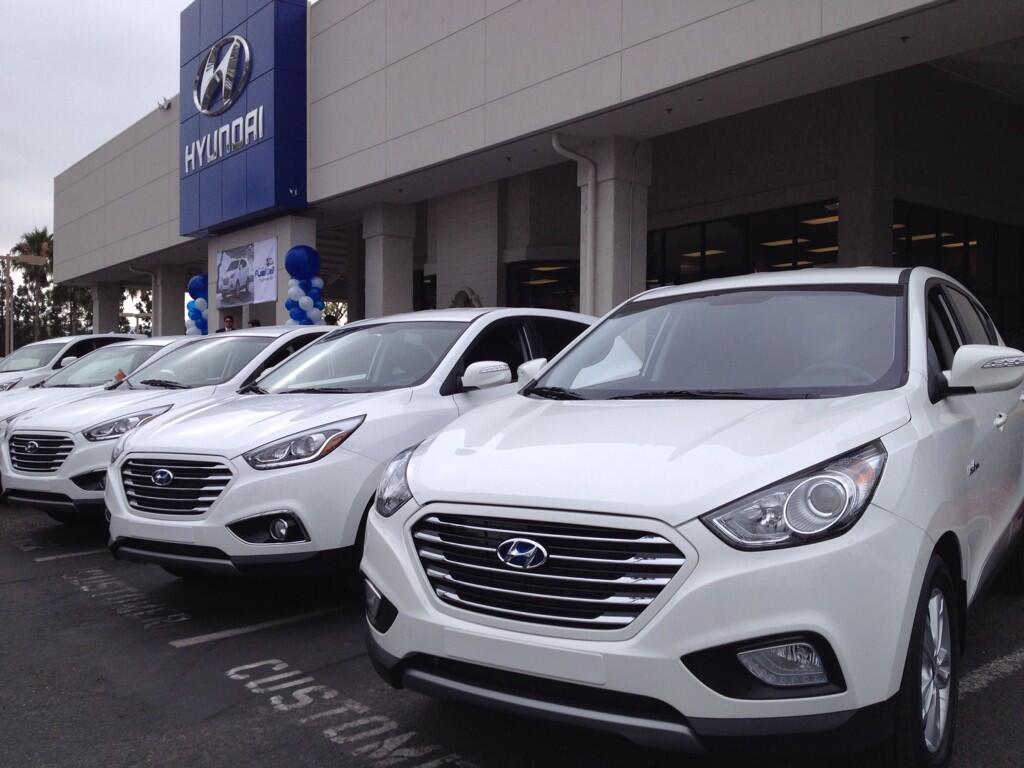A handful of new hydrogen fuel-cell cars are on the way, but to make them practical even in limited launch regions, they will have to be refueled.
The 2015 Hyundai Tucson Fuel Cell already available for lease in small numbers, and fuel-cell cars from Honda and Toyota are on the way, so policymakers have turned their attention to refueling infrastructure.
According to a recent Navigant Research blog post, California leads the way in U.S. hydrogen fueling-station construction.
ALSO SEE: Toyota Fuel-Cell Ad Asks: Are You 'The Bold Few' Or A 'Handbrake'?
That's hardly unexpected, since the state's zero-emission vehicle rules are driving the deployment of those fuel-cell vehicles in the first place.
Significantly, though, the state and its private partners are implementing lessons learned from previous experiments with hydrogen fueling infrastructure and fuel-cell cars as they build the latest round of stations.
![Toyota Fuel Cell Sedan at Aspen Ideas Festival [photo: Riccardo Savi] Toyota Fuel Cell Sedan at Aspen Ideas Festival [photo: Riccardo Savi]](https://images.hgmsites.net/lrg/toyota-fuel-cell-sedan-at-aspen-ideas-festival-photo-riccardo-savi_100478378_l.jpg)
Toyota Fuel Cell Sedan at Aspen Ideas Festival [photo: Riccardo Savi]
In May, the California Energy Commission (CEC) announced $46 million in awards to fund construction of 28 stations by November 2015.
This follows a previous commitment by the state of $20 million in annual funding between now and 2024 to build 100 stations.
But the CEC isn't just funding construction.
It also awarded $300,000 to four of California's nine current stations to pay for ongoing operations and maintenance, the importance of which lawmakers have come to realize since that first round of stations opened.

First 2015 Hyundai Tucson Fuel Cell delivered to lessee at Tustin Hyundai, June 2014
In addition, only three of the 28 awards went to industrial-gas companies (IGCs), which provide hydrogen. Instead, the majority went to new companies that exist solely to operate fueling-station networks.
FirstElement Fuel--which is partially funded by Toyota--received awards for 19 stations, which will be built at existing gas stations.
DON'T MISS: First Element Expects To Make Money Selling Hydrogen Fuel In 5 Years
The new company will install and maintain the stations, removing risk from both the property owner and the IGC that supplies the hydrogen.
In other words, the model will be similar to that used by operators of public electric-car charging stations.
The main difference is that hydrogen fueling stations are far more expensive and time-consuming to build, and much more new infrastructure is required to deliver energy to customers' cars.
_______________________________________________












